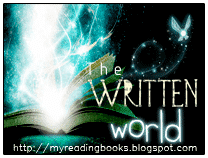
We have the end of the author of the month being posted today, so today will be focused on Neil Gaiman, but I just wanted to talk about a site I found through Lynn Flewelling's Live Journal. Earlier, Nath posted a list of the nominees for the Hugo Awards, and while there was a nice list, it was predominately a male list. The Broad Universe did what they call a "Bean Count." In these statistics they take a tour of the Science Fiction, Fantasy, and Horror department. It is scary just how uneven things are. You can read the whole list, but here are some of the hightlights:
For Starters, Romance is the most popular reading choice: (no wonder they are womanizing other genres, women appear as the predominant readers, although men read romance too)
Sales of popular fiction in 1999 including hardcovers and paperbacks. From Publishers Weekly (13 Nov 2000, p.42)
- Science fiction/fantasy: 7.3% of sales
- General fiction: 12.1% of sales
- Mystery/detective/suspense: 25.7% of sales
- Romance: 38.8% of sales
Authors of Forthcoming Books
From Locus (Dec 2000), list of Complete Books by (American) Publishers for Nov 2000 through Sep 2001. Note that not all these books represent new works of fiction; many are reissues of older works.
- 373 female authors (31%)
- 812 male authors (67%)
- 21 authors are of unknown gender (2%)
- Total: 1206
From Locus, Jan-Dec 2000
(Fractional points indicate two, three, or four editors.)
- 636.75 female authors/editors (31.4%)
- 1331.75 male authors/editors (65.7%)
- 57.5 authors/editors of unknown gender (including house names and anonymous) (2.8%)
- Total: 2026
Also, this is only one publishing company, there are others.
Before I wrap this up, what started this was the list for the Hugo's being mostly men. Here are some other years numbers for fantasy, science fiction, and horror awards. As you can see, it is an on-going thing:
Campbell
1973-79: 2 women, 6 men (25%, 75%)
1980-89: 5 women, 5 men (50%, 50%)
1990-99: 6 women, 5 men (55%, 45%)
Dick
1982-1989: 1 woman, 7 men (12%, 88%)
1990-1999: 1 woman, 10 men (9%, 91%)
Hugo
1953-59: 0 women, 13 men (0%, 100%)
1960-69: 1 woman, 26 men (4%, 96%)
1970-79: 11 women, 30 men (27%, 73%)
1980-89: 9 women, 31 men (22%, 78%)
1990-99: 13 women, 28 men (32%, 68%)
Nebula
1965-69: 3 women, 19 men (14%, 86%)
1970-79: 10 women, 27 men (27%, 73%)
1980-89: 14 women, 22 men (39%, 61%)
1990-99: 19 women, 21 men (47%, 53%)
Stoker
1987-89: 3 women, 14 men (18%, 82%)
1990-99: 14 women, 44 men (24%, 76%)
Tiptree
1991-1999: 15 women, 1 man, 1 transgendered (88%, 6%, 6%) <-- never heard of this one
World Fantasy
1975-79: 1 woman, 13 men (7%, 93%)
1980-89: 6 women, 32 men (16%, 84%)
1990-99: 11 women, 33 men, (25%, 75%)

2 comments:
These numbers don't surprise me. And I do prefer reading books authored by women, not just necessarily romance.
Yeah, these numbers didn't really surprise me either, but I have seen them surprise other people on other blogs that posted the same numbers.
Post a Comment